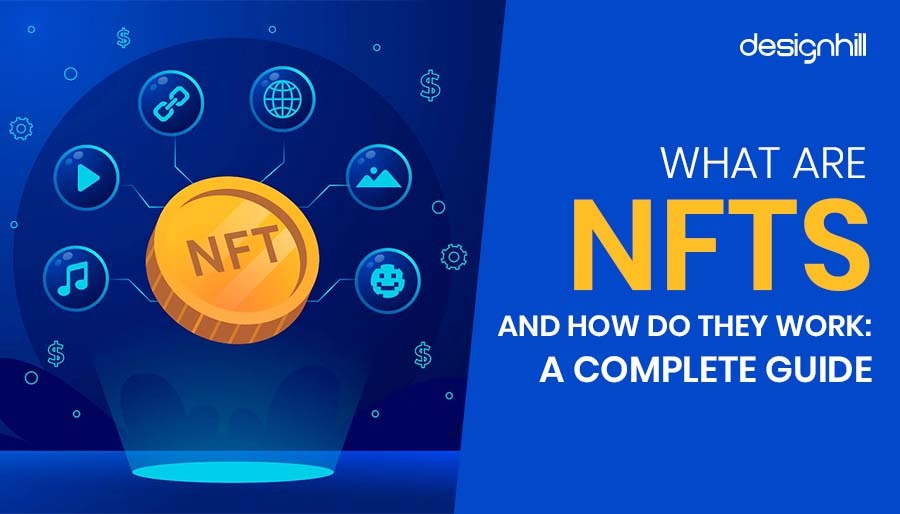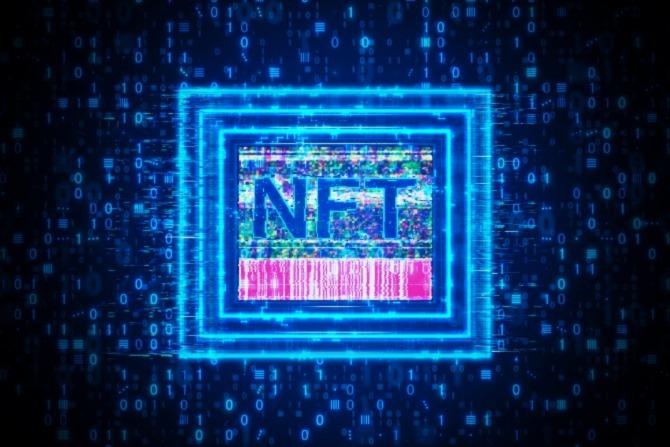In recent years, the intersection of blockchain technology, gaming, and digital assets has given rise to a revolutionary concept – NFT gaming. Non-fungible tokens (NFTs) have become a hot topic in the gaming industry, presenting new opportunities and challenges for game developers, players, and investors alike. In this blog post, we will delve into the world of NFT gaming, exploring the fundamentals of NFTs and how they function within the gaming ecosystem. We will also examine the profound impact of NFTs on game development, from creating new revenue streams for developers to enhancing ownership and value in the gaming world. Additionally, we will address the challenges and future prospects of NFT gaming, shedding light on the potential implications and opportunities that this technology brings to the gaming industry. Join us as we explore the transformative power of NFT gaming and its implications for the future of gaming.
What are NFTs and how do they work?
NFTs, or non-fungible tokens, are a type of digital asset that are used to represent ownership or proof of authenticity of a unique item or piece of content. Unlike cryptocurrencies such as Bitcoin or Ethereum, which are fungible and can be exchanged on a one-to-one basis, NFTs are one-of-a-kind and cannot be exchanged on an equivalent basis. NFTs are typically built on the Ethereum blockchain, using smart contracts to store and manage ownership information. This allows for the creation of digital scarcity, making each NFT unique and valuable.
So how do NFTs actually work? When an NFT is created, it is assigned a unique identifier that is stored on the blockchain. This identifier acts as a digital certificate of ownership, providing a way to verify the authenticity and provenance of the digital asset. NFTs can represent a wide range of digital content, including artwork, music, videos, and even tweets. The ownership and transfer of NFTs are recorded on the blockchain, providing transparency and security for both creators and collectors.
One of the key features of NFTs is the ability to attach metadata to the token, such as the creator’s information, the date of creation, and any additional characteristics that make the token unique. This metadata can enhance the value and ownership experience of NFTs, providing a deeper connection between the creator and the collector. NFTs have gained popularity in recent years, with high-profile sales of digital art and collectibles fetching millions of dollars.
As NFTs continue to gain traction, they are poised to revolutionize the way that digital content is created, bought, and sold. The ability to prove ownership and authenticity of digital assets has the potential to open up new revenue streams for creators, while providing a new way for collectors to invest in and appreciate digital art and media.
The impact of NFTs on game development
NFTs (Non-Fungible Tokens) have been making waves in the gaming world, with significant implications for game development. These digital assets are unique and not interchangeable, making them ideal for creating rare in-game items, characters, and landscapes. The introduction of NFTs has changed the way game developers approach the creation and sale of digital assets, as players can now truly own and trade their in-game items.
Furthermore, NFTs have opened up new avenues for revenue generation in the gaming industry. Game developers can now monetize unique in-game assets by selling them as NFTs, allowing players to invest in items that hold real value. This has the potential to revolutionize the gaming economy, as valuable in-game assets can now be bought, sold, and traded through blockchain technology.
Moreover, the introduction of NFTs has sparked innovation in game development, as developers are now incentivized to create high-quality, unique, and rare in-game items that players are willing to invest in. This has led to a shift towards creating more immersive and valuable gaming experiences, ultimately benefiting both developers and players.
Overall, the impact of NFTs on game development is undeniable. These digital assets have not only changed the way in-game items are created, sold, and owned, but also have the potential to reshape the gaming industry by creating new revenue streams, incentivizing innovation, and enhancing the overall gaming experience for players.
Creating new revenue streams for game developers
As the gaming industry continues to evolve, game developers are constantly seeking new ways to generate revenue. One innovative approach that has gained traction in recent years is the use of Non-Fungible Tokens (NFTs). NFTs are unique digital assets that are stored on a blockchain, making them rare and collectible. By incorporating NFTs into their games, developers can create new revenue streams by selling unique in-game items, characters, or even real estate within virtual worlds.
This shift towards NFTs represents a fundamental change in how game developers can monetize their creations. Instead of relying solely on traditional sales or in-game purchases, developers can now tap into the growing market of digital collectibles. This not only opens up new opportunities for revenue, but also allows developers to engage with their community in innovative ways, such as hosting live auctions for exclusive NFTs.
Furthermore, NFTs offer the potential for game developers to establish a secondary market for their digital assets. Once a player purchases an NFT in-game, they have the option to sell or trade it with other players, creating a vibrant marketplace for virtual goods. This not only adds value to the in-game items themselves but also fosters a sense of ownership and investment within the gaming community.
However, the integration of NFTs into gaming also presents challenges, such as ensuring the security and authenticity of digital assets, as well as navigating the regulatory landscape. Despite these hurdles, the potential for game developers to create new revenue streams through NFTs is undeniable, offering a glimpse into the future of how games are monetized and experienced.
Enhancing ownership and value in the gaming world
In the fast-paced world of gaming, players are constantly seeking new ways to enhance their gaming experience and gain more control over their virtual assets. The rise of NFTs (non-fungible tokens) has opened up a world of possibilities for gamers, allowing them to truly own and monetize their in-game items and characters. With NFTs, players can buy, sell, and trade unique digital assets with clear ownership and provenance, bringing a new level of value and authenticity to the gaming world.
One of the key ways in which NFTs enhance ownership in the gaming world is through the concept of true ownership. Traditionally, players have spent hours grinding and earning valuable in-game items, only to have them tied to the game’s ecosystem with little control over their actual ownership. With NFTs, players have the assurance that their digital assets are truly theirs, with the ability to transfer, sell, or display them outside of the game environment.
Furthermore, NFTs also bring a new level of value to the gaming world. Gamers can now invest in unique in-game assets that hold real-world value, with the potential for appreciation over time. This adds a new dimension to gaming, turning virtual items into valuable commodities that can be bought and sold on open marketplaces, creating new revenue opportunities for both players and game developers.
Overall, the introduction of NFTs has the potential to revolutionize the gaming industry, offering players true ownership of their digital assets and creating new avenues for value and monetization. As the technology continues to develop, we can expect to see more innovative ways for gamers to enhance their gaming experience and derive tangible value from their virtual assets.
Challenges and future prospects of NFT gaming
The world of gaming has evolved significantly over the years, and the introduction of NFTs has opened up a new realm of possibilities for gamers and developers alike. However, along with the potential benefits come a set of challenges and future prospects that need to be carefully considered.
One of the major challenges facing NFT gaming is the issue of scalability. As the popularity of NFTs continues to grow, the demand for blockchain technology has put a strain on existing networks, leading to slower transaction times and higher fees. Developers will need to find ways to address these scalability issues in order to ensure a smooth and efficient gaming experience for users.
Another challenge is the need for standardization and regulation within the NFT gaming space. As the market becomes more crowded, it becomes increasingly difficult for gamers to navigate the vast array of NFTs and virtual assets available. Without clear standards and regulations in place, there is a risk of fraudulent activities and scams, which could undermine the integrity of the NFT gaming industry.
Despite these challenges, the future prospects of NFT gaming are promising. With the potential to provide true ownership and value to in-game assets, NFTs have the power to revolutionize the gaming industry. As technology continues to advance, we can expect to see further innovations and developments that will enhance the gaming experience for players and create new opportunities for developers.
Frequently Asked Questions
What are NFTs and how do they work?
NFTs, or non-fungible tokens, are unique digital assets that represent ownership or proof of authenticity of a particular item or piece of content. They are built on blockchain technology, which ensures security and transparency in transactions.
What is the impact of NFTs on game development?
NFTs have the potential to revolutionize game development by allowing for true ownership and in-game economies. They enable players to buy, sell, and trade in-game assets, and also provide a new way for developers to monetize their games.
How are NFTs creating new revenue streams for game developers?
NFTs allow game developers to create and sell unique in-game items, characters, and skins as NFTs, which can generate an additional source of income. They can also earn royalties on secondary sales of these digital assets.
How are NFTs enhancing ownership and value in the gaming world?
NFTs give players true ownership of their in-game items, as these assets are recorded on the blockchain and cannot be duplicated or tampered with. This increases the value of digital goods and provides a sense of ownership and exclusivity.
What are the challenges and future prospects of NFT gaming?
Challenges in NFT gaming include scalability, energy consumption, and regulatory concerns. However, the future prospects are promising, with potential for widespread adoption, innovative game design, and a shift in how games are created, shared, and monetized.





